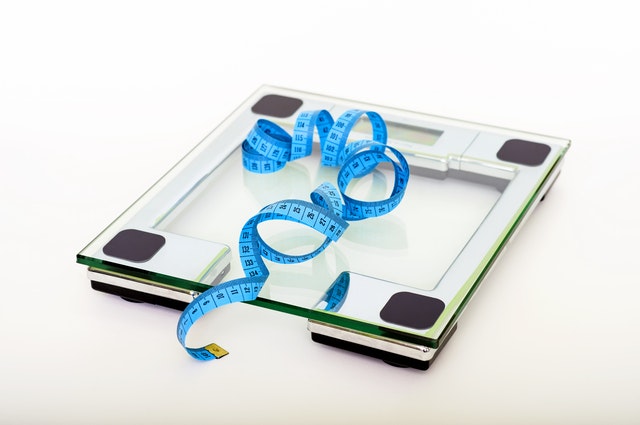Do you know what the diet trap is? It’s what the diet and weight loss industry would like us to stay stuck in. It goes like this:
- Notice weight gain and feel a strong (at times, desperate) need to lose weight
- Search for and begin a weight loss program
- Lose some weight, or maybe a lot of weight
- The majority of the time, regain the weight and often more (statistics here vary greatly based on how much weight is lost and what method you use, but the term “most” of of the time applies regardless)
- Blame yourself, and sometimes get told by others directly or indirectly it is your fault you regained the weight
- Rinse and repeat with another program or product
Sound familiar?
The weight regain is a problem, but even more problematic is the way this process affects our confidence and our mindset. Chronic, repeated weight loss diet attempts and “failures” impact:
- Our sense of confidence and competence (the feeling that you can set out and do the things you want to do)
- Our feeling of having control over our behaviors
- Other negative beliefs about ourselves (“I must be lazy or not have enough willpower,” “I’ll always struggle with my weight”)
Psychological “Issues” of People Who Struggle with Weight or Disordered Eating
I often hear the following about people struggling with weight or disordered eating (e.g., binge eating, other eating disorders):
- “People who are over 300 lbs must have some unaddressed trauma or psychological issue that they need to work through,” or
- “If you have an eating disorder, it isn’t about the food.” (Meaning, it’s about the person’s deep rooted issues)
While some people who struggle with weight or eating disorders have to work through significant issues underlying the eating disorder or weight struggle (for example, unaddressed trauma from their past), this is not at all a universal truth.
The chronic dieting cycle described above can erode our sense of self in a very problematic way and be the main psychological issue people are dealing with.
Newsflash: People who struggle with eating and weight are not categorically different
Our brains like to categorize and try to make sense of the world. It’s what they were designed to do.
So, while you may have a trauma to work through unrelated to eating, and you may have issues to work through once the layer of dieting is removed, guess what? That just makes you a human being and everyone in our world has something to work through, whether they struggle with their eating or not.
You are not categorically different or “messed up,” but instead we need to remove the layer of repeated dieting, feelings of perceived failure, and shame that you can’t “get it together.” After that, we can see what’s there. It may be unaddressed trauma, or it may just be another important realization, like realizing you need to make a change in your job or your relationship.
Although dieting and the weight struggle are still only the symptom, just like other symptoms like gambling addiction, exercise addiction, or a pattern of unhealthy relationships, when you remove or address the symptom, we can see the underlying issue more clearly.
Dieting is Tempting for a Reason

It offers us the promise that we will feel good about ourselves. Confident and happy in just X amount of weeks. But when we get there, often the same problems are still with us. And if we use ineffective dieting methods to get there, most of the time the weight is regained. Not because of any fault of our own, but because dieting goes against our body’s natural biology and psychology and messes with the very systems we need to maintain long-term habit change.
Dieting is also tempting because diet and weight loss industry marketing knows how to sell it. They know what motivates us, and we know what motivates them ($$). But it’s time to take back control and focus our money and energy on what truly works.
Let’s Remove the Distractions
The problem with dieting is not just that it erodes our self-confidence, it also distracts us from working on whatever issues lie underneath. Dieting and emotional eating or binge eating can cover up and keep us from looking inward to see what really needs to change. But because we get so caught up in the ineffective dieting cycle, we don’t allocate resources towards:
- A solution that actually works
- Solving the actual problem at hand (e.g., changing relationships, jobs, or addressing longstanding unhealthy beliefs about ourselves)
The Comprehensive Case Against Dieting, and What To Do About It
This series of posts will make the case against dieting and covers:
- The fact that self-control is a limited resource. Meaning, we only get so much willpower in a given day. People with sustainable healthy habits are not fighting tooth and nail every single day to do them, despite what might be portrayed in the media. We will talk about how to use this knowledge in our favor and learn to make habit changes that can actually truly last over the long haul. Check out the post here: NEWSFLASH: No One Has Enough Willpower for Dieting.
- How dieting messes with our biology. It isn’t just in your head, our body fights hard against our dieting attempts, and much of the weight regain people experience is due to this, yet they blame their “lack of willpower.” The is solid research on the biological changes that occur after weight loss dieting, and it does not bode well for the diet industry. If this doesn’t convince you that diets are failing us, and not the other way around, I don’t know what will. Check it out here: How Dieting Messes with Our Biology.
- The ways that dieting erodes the universal psychological needs that are essential for long-term behavior change. We know from decades of research on motivation that we all need three psychological needs met to promote behavior change over the long-term: competence, relatedness, and autonomy. Without these needs met, sustained change in any important area of your life is unlikely. Dieting reduces all three, yet we keep dieting… Read more on this here.
So Dieting is Bad, Now What?

If you are ready to move away from dieting and towards sustainable change, I have a FREE 3-day workbook that can jump start this progress. While dieting promotes an external focus (how many calories or carbs have I had today), true long-term lifestyle changes requires listening to our bodies internal hunger and satisfaction signals and this guide will help you get started with just that. So check it out by clicking here, and let me know what you think!
And stay tuned for most posts regarding the science behind the anti-diet movement, and how to lay the foundation for feeling empowered and in control around food to reach your most important goals.
What do you think?
Does this shift your opinion of dieting? Are you surprised? How will this (if it does) change your behavior/approach moving forward?
